Online Speech: Can You Be Sued for What You Say Online?
Understanding the Legal Boundaries of What You Say on the Internet

Online speech is everywhere. Every day, millions of people post, comment, tweet, and share their thoughts on social media, blogs, and forums. The internet gives everyone a voice, but it also comes with responsibilities. Online speech can have real-world consequences, including lawsuits, fines, and even criminal charges. This article will explain what you need to know about the legal risks of online speech, how to protect yourself, and what to do if you ever find yourself in trouble.
What Is “Online Speech”?
Online speech is any message, comment, post, video, or image you share on the internet. This includes:
- Social media posts (Facebook, Twitter, Instagram, LinkedIn)
- Blogs and articles (personal blogs, news sites, forums)
- Comments (on YouTube, news articles, forums)
- Private messages (if they are shared or leaked)
- Videos and podcasts (uploaded to platforms like YouTube or Spotify)
Because online speech can be seen by anyone, it has the power to spread quickly and reach people you never intended. This makes it important to think carefully before you post.

Can You Be Sued for What You Say Online?
Yes, you can be sued for online speech if it breaks the law or harms someone else. The most common reason people get sued is for defamation—saying something false that hurts someone’s reputation. But there are other legal risks too, like copyright infringement, privacy violations, harassment, and even criminal charges in some cases.
What Is Defamation?
Defamation is when you say or write something false about someone else that damages their reputation. There are two main types:
- Libel: Written defamation (like a post, tweet, or blog).
- Slander: Spoken defamation (like a video or podcast).
Most online speech cases involve libel because posts and comments are written and permanent.
How Does Defamation Work Online?
For a statement to be defamatory, it must:
- Be false (not true).
- Be published (seen by at least one other person).
- Cause harm (hurt someone’s reputation or cause them to lose money).
- Not be privileged (not said in a special legal setting, like court).
If all these are true, you could be sued for defamation.
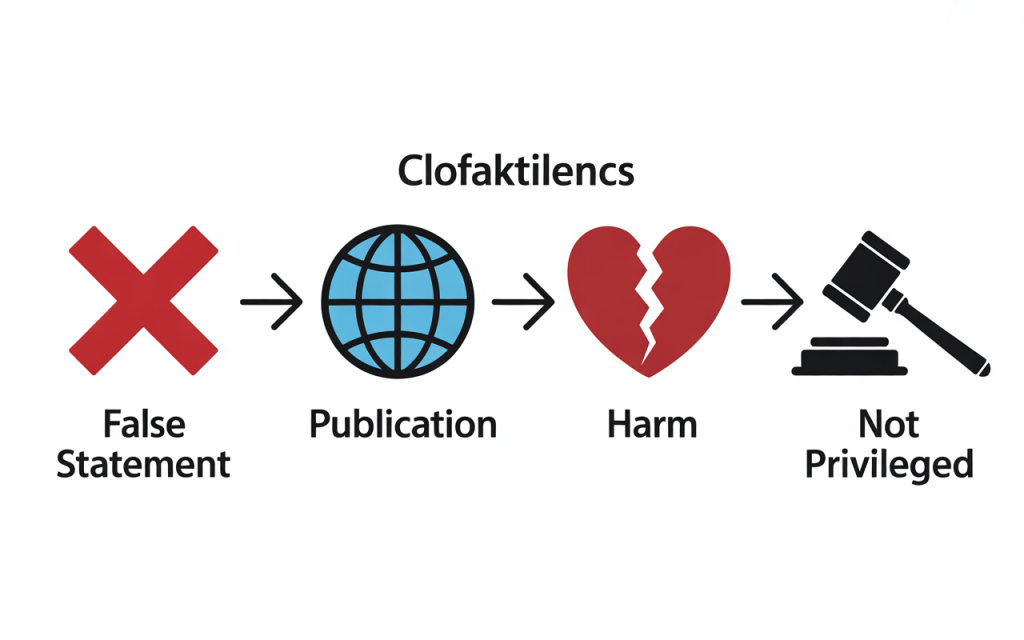
What Are the Legal Consequences of Online Defamation?
If you’re found guilty of defamation, you could have to:
- Pay money (damages) to the person you hurt.
- Remove the post or comment.
- Issue an apology or correction.
- Face criminal charges in some countries or states.
Defamation lawsuits can be expensive and stressful. Even if you win, you might still have to pay legal fees.
Table: Key Elements of Online Defamation
| Element | What It Means |
|---|---|
| False Statement | The statement must be untrue. |
| Publication | At least one other person must see or hear it. |
| Harm | The statement must cause real harm or damage. |
| Not Privileged | Not said in a special legal or official setting. |
Other Legal Risks of Online Speech
Defamation isn’t the only risk. Here are other ways online speech can get you in trouble:
1. Copyright Infringement
Sharing someone else’s photos, music, or writing without permission can lead to lawsuits. Even if you don’t make money from it, you could still be sued for copyright infringement.
2. Privacy Violations
Sharing private information about someone else (like their address, phone number, or personal photos) can be illegal. This is especially true if the information is shared without their consent.
3. Cyberbullying and Harassment
Repeatedly targeting someone online with mean or threatening messages can be a crime. Many countries have laws against cyberbullying and online harassment.
4. Criminal Charges
Threatening someone or inciting violence can lead to criminal charges, not just lawsuits. In some cases, you could face fines or even jail time.
5. Breach of Contract
If you share confidential information after signing a contract (like a non-disclosure agreement), you can be sued for breach of contract.
6. False Advertising
If you make false claims about a product or service, you could be sued for false advertising. This is especially important for influencers and businesses.
7. Impersonation
Pretending to be someone else online (like creating a fake profile) can also lead to legal trouble.
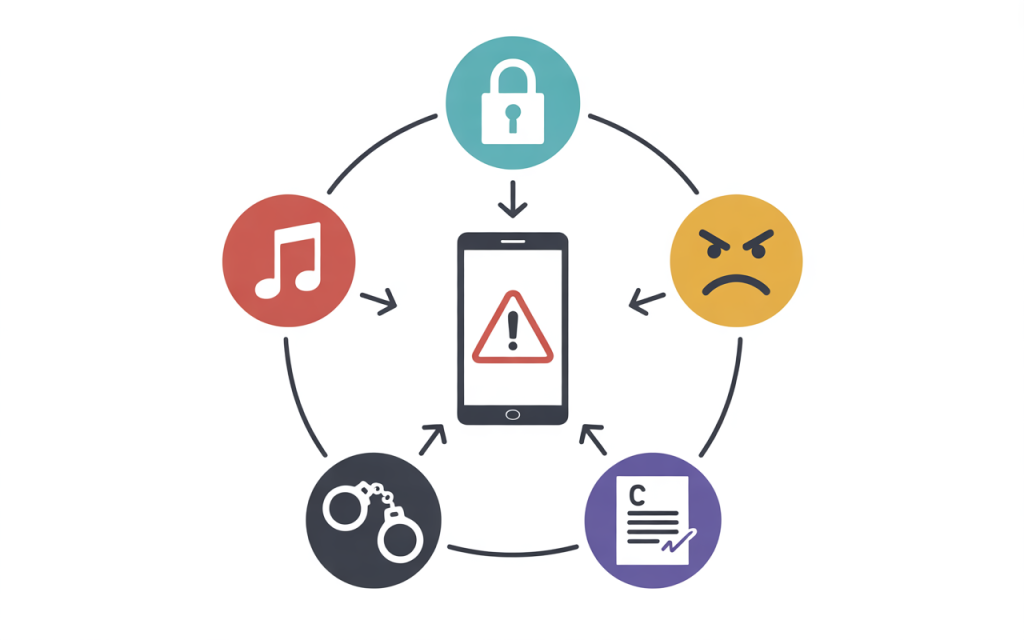
Real-Life Examples of Online Speech Lawsuits
Here are some real-life examples of how online speech has led to lawsuits:
- Negative Reviews: A business owner sued a customer for a bad online review. The court said the review was defamatory because it made false claims.
- Social Media Posts: A doctor sued someone who posted false accusations on Instagram, leading to lost business. The court ordered the post to be removed and awarded damages.
- Retweets and Shares: Even if you didn’t write the original post, sharing or retweeting defamatory content can make you liable.
- Anonymous Posts: People have been sued for anonymous posts. Courts can order websites to reveal the poster’s identity.
- Copyright Infringement: A photographer sued a blogger for using their photo without permission. The blogger had to pay damages and remove the photo.
- Privacy Violations: A celebrity sued a magazine for publishing private photos without consent. The magazine had to pay a large settlement.
How to Protect Yourself from Online Speech Lawsuits
Here are some simple tips to avoid legal trouble:
- Stick to the facts. Only say things you know are true.
- Avoid exaggerating or making up stories.
- Don’t share private information about others.
- Be careful with negative reviews. Make sure your criticism is honest and fair.
- Don’t share or retweet harmful content.
- Use disclaimers. If you’re giving an opinion, say so clearly.
- Read contracts. Don’t share confidential information if you’ve signed an agreement.
- Think before you post. If you wouldn’t say it in person, don’t say it online.
- Be respectful. Avoid name-calling and personal attacks.
- Don’t spread rumors. Only share information you know is true.
- Use privacy settings. Limit who can see your posts if you’re unsure.
- Educate yourself. Learn about the laws in your country or state.
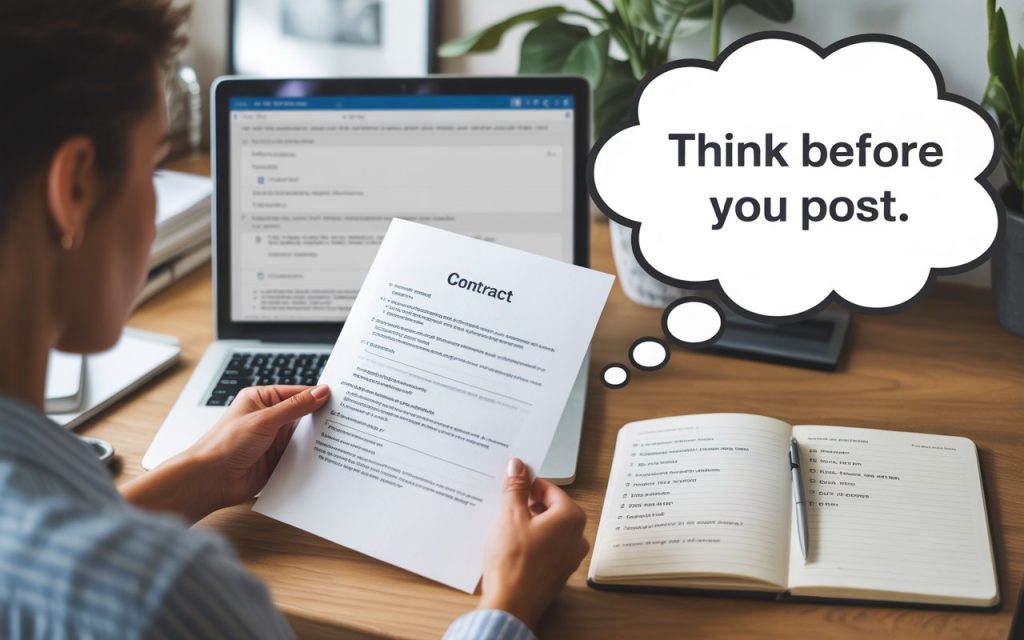
What to Do If You’re Sued for Online Speech
If you get sued for something you said online:
- Don’t panic. Contact a lawyer right away.
- Save all evidence. Keep copies of your posts and any messages.
- Don’t delete anything unless your lawyer says so.
- Be honest with your lawyer. Tell them everything that happened.
- Follow legal advice. Your lawyer will help you decide what to do next.
Table: Steps to Take If Sued for Online Speech
| Step | What to Do |
|---|---|
| Contact a Lawyer | Get legal help immediately. |
| Save Evidence | Keep all posts, messages, and screenshots. |
| Don’t Delete | Don’t remove content unless your lawyer says so. |
| Be Honest | Tell your lawyer the truth about what happened. |
| Follow Advice | Do what your lawyer recommends. |
The Role of Social Media Platforms
Social media platforms like Facebook, Twitter, and Instagram have rules about what you can say. They can remove posts, ban users, or even help courts find out who posted something. But in most cases, you—not the platform—are responsible for what you say.
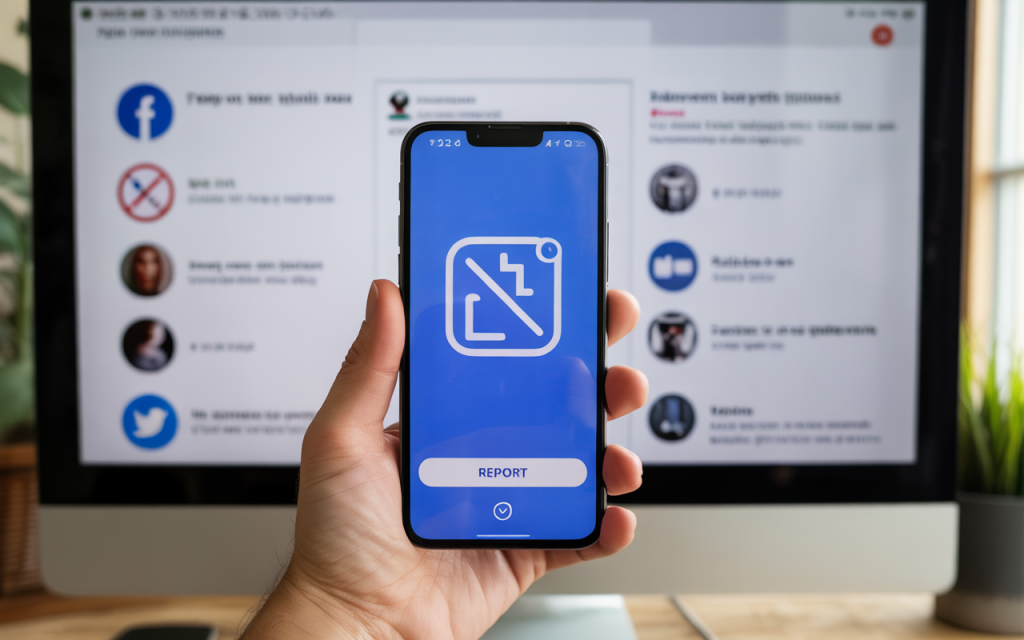
International Differences in Online Speech Laws
Laws about online speech are different around the world:
- United States: Strong free speech protections, but you can still be sued for defamation or harassment.
- United Kingdom: Strict defamation laws. It’s easier to win a defamation case, and damages can be high.
- Australia and Canada: Similar to the UK, with strong protections for reputation.
- Other Countries: Some countries have even stricter laws, and you could face criminal charges for online speech.
It’s important to know the laws in your country or state before you post something that could be controversial.
Frequently Asked Questions (FAQs)

Q: Can you be sued for a comment or post on social media?
A: Yes, you can be sued for comments or posts on social media if they are defamatory, violate privacy, or break other laws.
Q: What if I only shared or retweeted something?
A: Sharing or retweeting defamatory content can also make you liable, not just the original poster.
Q: Can I be sued for an opinion?
A: Opinions are usually protected, but if your opinion is presented as a fact or is based on false information, you could still be sued.
Q: What if I post anonymously?
A: Even anonymous posts can lead to lawsuits. Courts can order websites to reveal your identity.
Q: Can I be sued for a negative review?
A: Yes, if your review contains false statements that harm someone’s reputation, you could be sued.
Q: What should I do if I’m sued for something I said online?
A: Contact a lawyer, save all evidence, and follow legal advice.
Q: Can social media platforms be sued for what users post?
A: In most countries, platforms are protected from lawsuits for user content, but you as the poster can still be sued.
Q: Are there criminal penalties for online speech?
A: In some countries and states, yes. You could face fines or even jail time for certain types of online speech.
Q: What if someone says something false about me online?
A: Save the evidence, report the post, and consider contacting a lawyer. You may be able to take legal action.
Q: How can I protect myself from online speech lawsuits?
A: Stick to the facts, respect privacy, avoid rumors, use disclaimers, and educate yourself about the law.
How to Avoid Online Speech Lawsuits
Here are some extra tips to stay safe:
- Think before you post. If you wouldn’t say it in person, don’t say it online.
- Be respectful. Avoid name-calling and personal attacks.
- Don’t spread rumors. Only share information you know is true.
- Use privacy settings. Limit who can see your posts if you’re unsure.
- Educate yourself. Learn about the laws in your country or state.
- Be careful with humor and sarcasm. Sometimes, jokes can be misunderstood and cause harm.
- Don’t post when you’re angry or upset. Take a break and think before you respond.
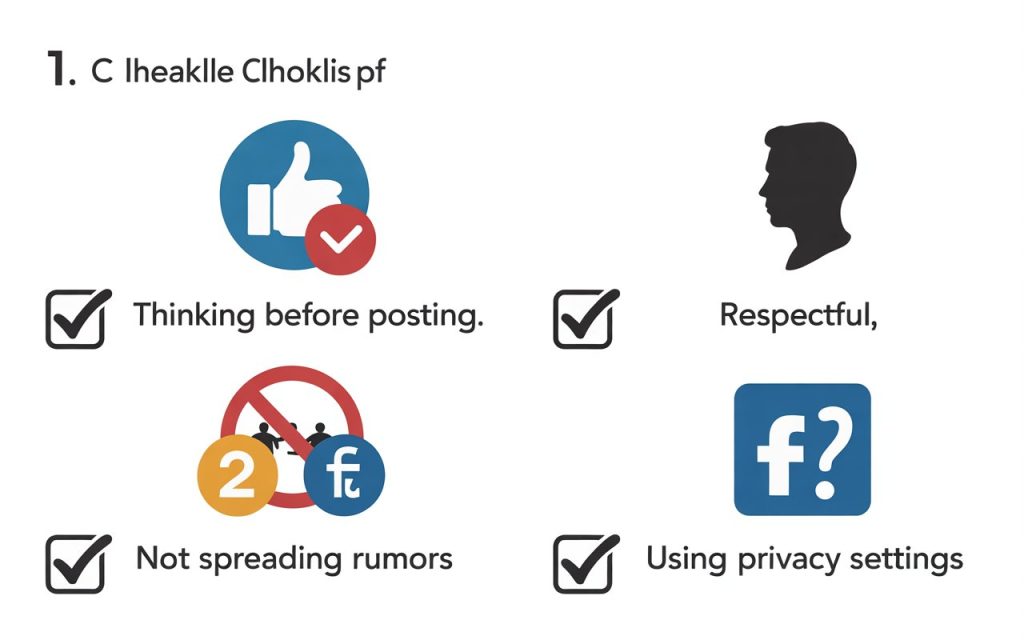
What If You’re the Victim of Online Defamation?
If someone says something false about you online:
- Save the evidence. Take screenshots and note the date and time.
- Report the post. Most platforms have tools to report harmful content.
- Contact a lawyer. They can help you decide if you have a case.
- Consider a cease and desist letter. This asks the person to stop and remove the post.
- File a lawsuit if necessary. If the harm is serious, you may need to go to court.
Table: What to Do If You’re the Victim of Online Defamation
| Step | What to Do |
|---|---|
| Save Evidence | Take screenshots and note details. |
| Report the Post | Use platform reporting tools. |
| Contact a Lawyer | Get legal advice. |
| Send Cease & Desist | Ask the person to stop and remove the post. |
| File a Lawsuit | Go to court if the harm is serious. |
The Future of Online Speech
As the internet grows, so do the legal risks of online speech. New laws are being made to protect people from harm, but also to protect free speech. It’s important to stay informed and be careful about what you say online.

Conclusion
Online speech is powerful. It lets you share your thoughts with the world, but it also comes with risks. You can be sued for what you say online if it’s false, harmful, or breaks the law. Defamation is the most common reason, but there are other legal dangers too. By being careful, sticking to the facts, and respecting others, you can enjoy the benefits of the internet without the legal headaches.




